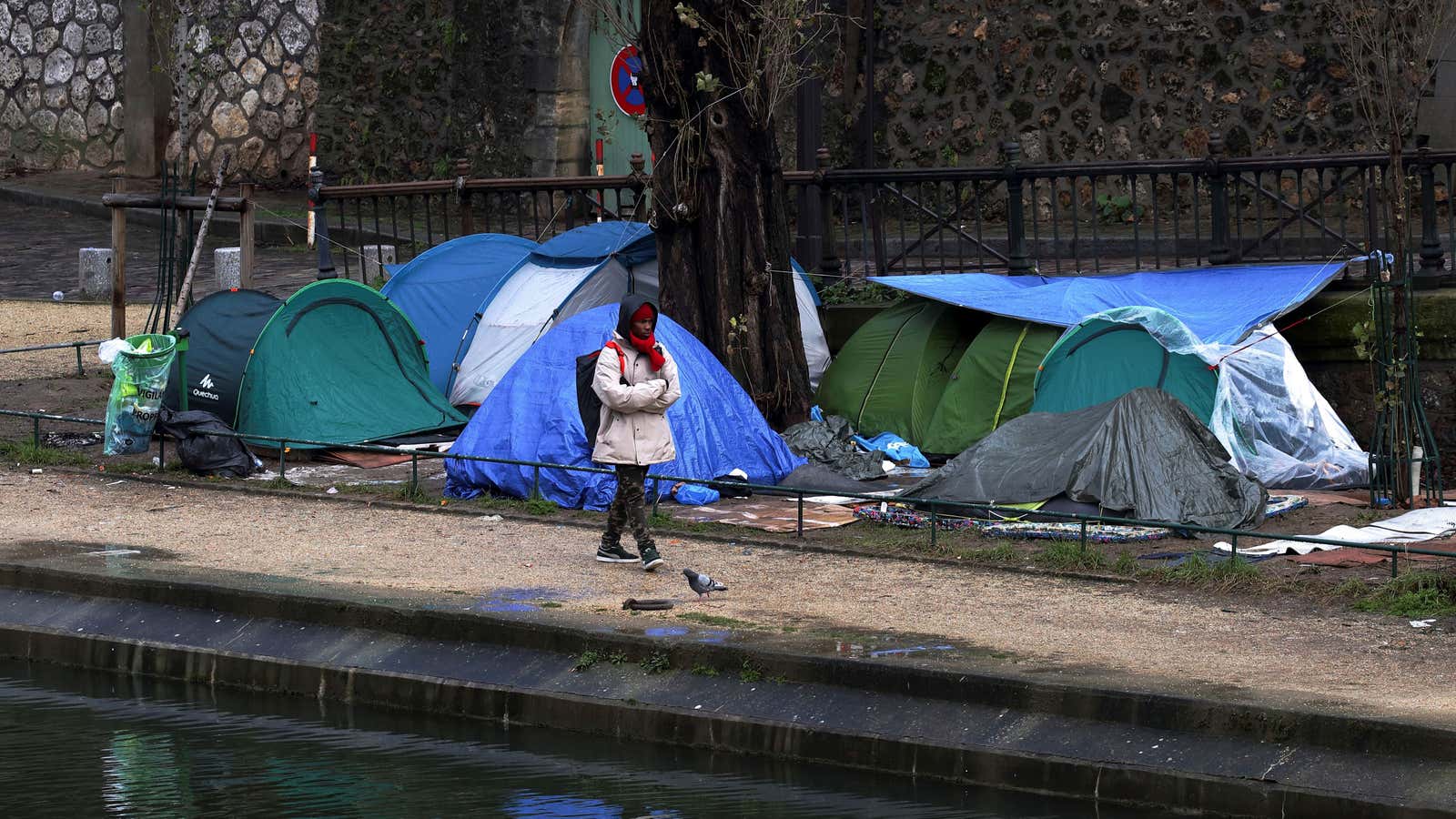Significant cracks have started to form in Emmanuel Macron’s new political party. The divide is, perhaps unsurprisingly, about Europe’s thorniest issue—immigration.
The French National Assembly approved a controversial immigration bill, which was described by Macron’s government as a balanced response to Europe’s refugee crisis when it was first proposed in February. After 61 hours of debate, the bill passed with 228 votes in favor to 139 against, with 24 abstentions in total. The bill doubles the amount of time undocumented migrants can be detained, shortens asylum application deadlines, and introduces a one-year prison sentence for entering France illegally.
Up until now, Macron’s nascent party, which is made up of an eclectic mix of MPs that sit on both the left and right of the political spectrum, has largely stood united with him. The debate around the immigration bill was a key test of unity for the centrist party. While the majority of Macron’s party voted for the bill, 14 members abstained and one member, Jean-Michel Clément, voted against the legislation and declared he would be leaving the parliamentary group. Clement said ”I am not sure we’re sending to world citizens the universal message that has always been ours,” Clément said in a statement (link in French) after the vote. Separately, he also warned that the immigration bill gave a “great platform” to the Front National, France’s most formidable far-right party.
While Marine Le Pen, the leader of the FN, and elected members of her party voted in favor of some of the most restrictive elements (link in French) of bill, many were still unhappy with the government’s response to immigration. In the run up to the vote, the party called (link in French) for a “rally against the government’s immigration policy,” arguing Macron’s government has not gone far enough in addressing Europe’s migrant crisis.
Many other left-wing parties voted against the bill, opposing provisions that allowed children to be held in detention for up to 90 days. “Nothing justifies locking up a kid,” said Hervé Saulignac, who is a member of the Socialist Party. Richard Ferrand, the head of Macron’s parliamentary group in the assembly, defended the bill; saying the bill proved “our determination to regulate migration, to promote effective integration, to guarantee the right to asylum, in line with the commitments made by the president of the republic.”
NGO Human Rights Watch slammed the bill and warned that shortening asylum application deadlines could hurt the “most vulnerable asylum seekers, who would be the ones most likely to miss the deadline.” Amnesty International France described the bill (link in French) as “dangerous” for migrants and asylum seekers.
While asylum application has dropped dramatically across Europe, France has largely bucked the trend. More than 100,000 people applied for asylum in France last year—a 17% increase over 2016. Just 36% of applicants were granted refugee status, while around 85,000 people were turned away at the country’s borders.
